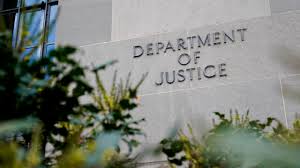McKinsey Company’s Bribery Scheme — A Familiar Pattern in South Africa (Part II of III)

The McKinsey FCPA case follows several other significant cases involving South Africa. ABB and SAP resolved FCPA cases involving bribes in South Africa; on the SEC front, Gartner resolved a bribery case involving South Africa.
Like these other cases, McKinsey’s bribery scheme focused on two important state-owned enterprises: Transnet Ltd, the South African company responsible for operation of ports, rails and pipelines; and Eskom Ltd., the South African company responsible for South Africa’s public power utility.
McKinsey’s bribery activity was orchestrated by a senior executive, Vikas Sagar, who coordinated and executed bribery payments with the assistance of two third-party consultants.
Transnet
Sagar initially met with a Transnet foreign official 1 and they agreed to enlist a local business (company 1), as required under South African policy, to partner with McKinsey to join in seeking contract opportunities. Foreign official 1 then introduced Sagar to CC1, an individual with no connection to Transnet to serve as Sagar’s intermediary.

Sagar and Company 1 agreed to split consulting fees, recognizing that a portion of these fees would be paid to CC1 and foreign official 1. In return for the bribes, foreign official 1 served as an “inside man” at Transnet by providing confidential information and coordinating the award of multiple contracts to McKinsey.
To avoid detection, Sagra and CC1 limited written and electronic communications, and met in person to discuss details and contracting opportunities. They used private personal emails addresses rather than business email accounts.
McKinsey secure confidential information involving specific contract tenders, including the competitors for consulting contracts, and advance assurances that McKinsey would receive the award of a contract involving Transnet’s acquisition of certain locomotives. Further, at CC1’s urging, Sagar increased the amount of money given to the local partner company 1 to the detriment of McKinsey even though company 1 contributed little to no work for Transnet. On several occasions, McKinsey was able to secure sole-source contracts avoiding the competitive process.
Eskom
In 2015, multiple Transnet officials transferred to Eskom. CC2, another third-party intermediary, spun off a new consulting company 2. Sagar joined McKinsey’s Eskom team to secure valuable consulting contracts. Sagar worked with CC1 and CC2 as intermediaries to Eskom foreign official 2.

McKinsey engaged company 2 to participate in the bribery scheme as the local partner pursuant to South Africa’s local partner requirements. Foreign official 2 focused on the fee split of 50-50 between McKinsey and company 2, while recognizing that a portion of the fees would be paid to foreign official 2 and CC2. Based on this understanding, CC1 agreed to set up a meeting with key Eskom executives. McKinsey was awarded a valuable contract worth hundreds of millions of dollars.
McKinsey conducted due diligence on the new company 2, beginning after it already had engaged company 2. In March 2016, McKinsey rejected company 2 after the company failed to respond to due diligence inquiries. Despite notifying Eskom that it would terminate the contract with company 2, Eskom and McKinsey continued to work with company 2 for several months.
In a separate action, McKinsey terminated its contract with company 1 after an executive was identified for involvement in a scandal and another politically exposed person was disclosed.
McKinsey’s work with Eskom ended in November 2016.















